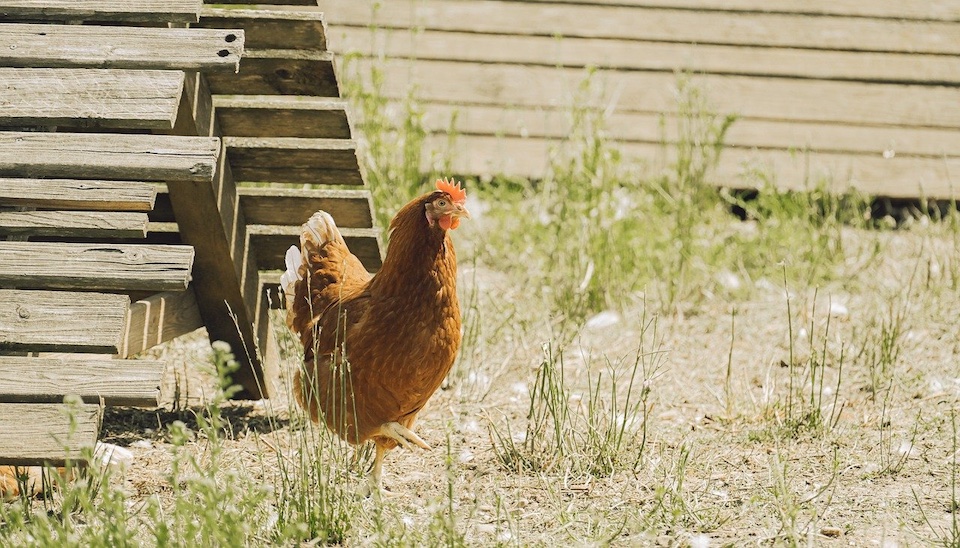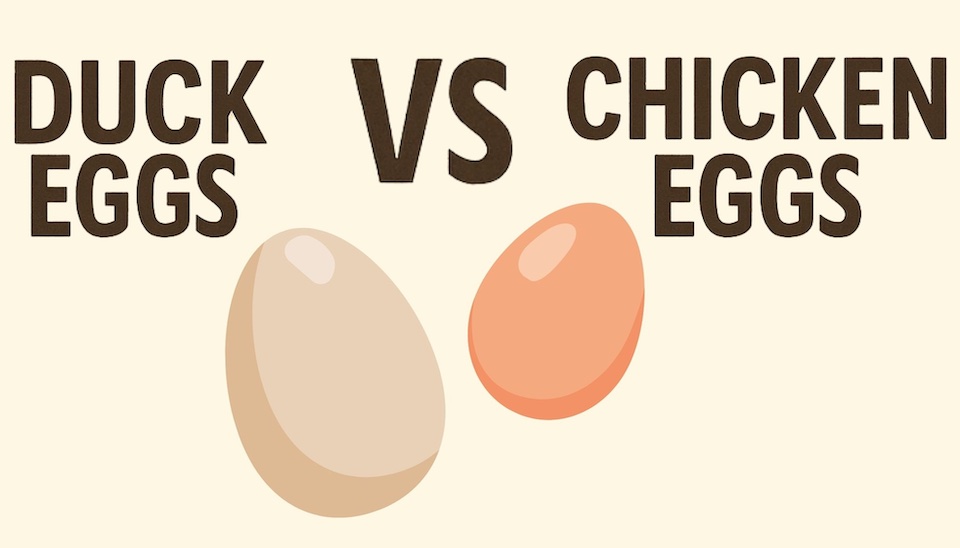Why Are My Chickens Eating Their Eggs and How Can I Stop It?
Why Are My Chickens Eating Their Eggs and How Can I Stop It?
Chickens eating their own eggs can be a real headache, especially for beginner backyard keepers. For farmers, it’s more than just frustrating—it’s money down the drain. After all, no one wants to spend hard-earned cash on feed only to watch the eggs disappear before they even make it to the carton.
Egg-eating usually starts innocently. Perhaps a hen pecks at a cracked egg and gets a taste of the yummy contents. But left unchecked, it can quickly become a bad habit that spreads to other hens in your flock. The good news is there are practical steps how to stop chickens from eating their eggs.
The two most common reasons for chickens eating eggs are nutritional deficiencies (like low calcium or protein) and bad habits formed due to boredom or curiosity. Addressing these causes head-on will save your precious eggs and keep your hens healthier and happier.
If you're dealing with egg-eating hens, here’s what you can do right away:
- Collect eggs multiple times daily so the eggs are not sitting in the nesting boxes for a long time
- Add fake clay eggs or golf balls in the nesting boxes. Chickens will peck at these, but since there’s no reward, they’ll eventually lose interest in pecking altogether
- Identify the problem hens so you know who is eating the eggs (also, be sure it's your chooks eating the eggs and not rats in your coop)
- Invest in roll-away nesting boxes that keep eggs out of reach so chickens can't peck them.
- Offer calcium-rich Natural Shell Grit or a calcium supplement like Vetsense Avi-Calcium added to their drinking water.
- Prevent boredom with simple chicken-friendly activities.
Let’s explore these strategies step-by-step to solve this issue for good.
Why Chickens Eat Their Eggs
Eggs are actually a nutritious treat for chickens. But even though we give our chooks cooked eggs sometimes, they don't automatically connect this high-protein treat with the eggs in the nesting boxes, nor do they instinctively want to eat eggs. Egg eating only starts when chickens discover that eggs actually contain tasty food.
Chickens are naturally curious. If an egg is accidentally broken in the nesting box, due to squabbling, an accident or predators, chickens will peck at it. If they discover it is tasty and nutritious, they will eat it.
Egg eating happens when chickens learn to connect the egg in the nesting box with a tasty snack - it only takes one or two broken eggs for a chicken to become an egg eater. And if one chicken becomes an egg eater, other hens will quickly pick up her bad habit!
Prevent Egg Eating Chickens
You know the old saying, prevention is better than a cure. This is especially true of egg eating chickens.
Once a chicken develops a taste for egg eating, it is extremely hard to break the habit. It is much better to set up your chicken coop to prevent egg eating becoming an issue in the first place.
So how do you prevent egg eating becoming a problem in your chicken coop?
- Don't leave eggs in the nesting boxes: The most common reason for broken eggs is chickens treading on them in the nesting boxes. Collecting eggs regularly or using a Roll Away Nesting Box will ensure eggs aren't sitting around. If there are no eggs to be accidentally broken, chickens won't learn to eat them.
- Have the right number of nesting boxes: Eggs are often broken by hens squabbling over nesting boxes, so ensure you have enough appealing nesting boxes for your flock (we recommend one box for every 3-5 hens).
- Deal with broody hens: Another cause of squabbling is a broody hen occupying a nesting box, so deal with broodies early and remove them from the coop to sit on eggs.
- Predator-proof the coop: Goannas, birds like crows, snakes and rats will eat chicken eggs. While this is better than losing a chicken, predators may also leave egg shells or broken eggs in the coop or nesting box, giving chickens an opportunity to taste eggs.
- Never limit access to feed: Hungry chickens will peck at anything, so limiting feed makes it more likely that hens will discover that eggs are a tasty treat.
- Prevent boredom: Bored chickens also peck at things. Provide plenty of boredom busters and opportunities for chickens to express natural foraging behaviours, and they are less likely to spend time pecking at eggs until they accidentally break one!
- Provide a good diet: Chickens can become egg eaters due to nutritional deficiencies, although this usually occurs after they have discovered what is inside an egg through an accidental breakage. Protein, essential amino acids and calcium are the most common deficiencies that can contribute to egg eating. Calcium deficiencies also result in weak eggshells, which make breakages more common.
How to Stop Chickens Eating Eggs
If egg-eating has already become a habit, tackling it from multiple angles is the most effective solution.
Combine the following approaches:
1. Identify the Problem Hen
If one hen is responsible for most of the pecking, watch the flock closely to catch her in the act. Once identified, separate her temporarily and remove her eggs promptly for a few days. Often, this break in routine is enough to stop the behaviour.
It is also important to keep the culprit separate from the rest of the flock to prevent other hens learning the bad habit and becoming egg eaters too. Hens can definitely learn from imitating each other, and a flock of egg eaters is the last thing you want!
Now, if you’re chatting with other backyard keepers, you might hear someone joke about making the culprit “guest of honour at the Sunday roast.” Take that with a grain of salt! It can take a bit of patience to retrain a stubborn chook, but you can usually get them to stop eating their own eggs with the right approach.
Give the other tips a fair go first, and you’ll likely sort out the issue without such drastic measures.
2. Collect Eggs Frequently
One of the simplest solutions is to collect eggs throughout the day, reducing the chance for your hens to access and peck at them. Early morning and early afternoon are the most common laying times.
If you are away all day and cannot collect the eggs regularly, invest in a Roll Away Nesting Box so that chickens don't have access to the eggs after they are laid.
3. Improve Their Nesting Setup
Eggs left in unsuitable nesting areas are at greater risk. Switch to roll-away nesting boxes that automatically separate eggs from the hens. This keeps your eggs intact and ensures they remain clean. Explore our roll-away nesting boxes here.
If you prefer traditional boxes, make sure they’re well-padded, shaded, and inviting to hens to prevent them from laying eggs elsewhere.
4. Use Fake Eggs
Place clay eggs, wooden eggs, or even clean golf balls in nesting boxes. You can buy fake eggs online or in well-stocked poultry supply stores. Even some hardware stores carry them.
Chickens will peck at the fake eggs, but since there’s no reward, they’ll eventually lose interest altogether.
Check and replace fake eggs periodically if they become damaged or dirty. You should also clean them every whenever you clean the nesting boxes to keep the nesting area hygienic.
5. Boost Calcium Levels
A common trigger for egg eating is calcium deficiency. Hens need plenty of calcium to produce strong eggshells, and when their diet falls short, they may start eating eggs to supplement their needs. In addition, calcium deficiency causes thin-shelled eggs, which are more likely to break and cause egg eating in the first place.
Offer free-choice shell grit or liquid calcium like Vetsense Avi-Calcium diluted in their water feeder. This is especially important during peak laying seasons.
6. Increase Protein in Their Diet
Low protein levels can also lead to egg eating. Laying hens need around 16–18% protein in their diet. If you suspect their feed is lacking, supplement with protein-rich snacks like mealworms or adjust their feed.
Learn more about protein requirements for chickens.
7. Try “Trapping” Eggs with Mustard
This is one of those tips you’ll see floating around the internet, and it’s had mixed reviews. Some people swear by it, while others share videos (see below) of hens developing a taste for mustard instead! So, try it at your own risk. If you do, let us know how it goes—your experience might help other backyard keepers.
For those willing to give it a shot, this method can be effective if you catch egg eating early. Hollow out an egg by carefully blowing out its contents, then refill the shell with mustard or another substance chickens don’t like. Most hens will take one peck and decide it’s not worth it.
Seal the hole with a bit of tape or wax, place the “trap egg” in the nesting box, and observe. With a little luck, your hens will learn their lesson quickly!
8. Address Predators or Broken Eggs
Sometimes, chickens eat eggs that are already broken, especially if predators like rats or goannas (lace monitors) invade the coop and damage eggs. Check your coop for signs of predators, such as droppings or gnawed holes, and secure any openings.
Read how to get rid of rats in the coop.
Additionally, inspect your nesting boxes for proper padding to prevent eggs from cracking when laid. Use soft materials like straw or shredded paper to cushion eggs.
9. Keep Chickens Active and Engaged
Boredom is a leading cause of egg eating behaviour. Confined chickens with little to do may start pecking at eggs or even each other. Provide enrichment activities, such as:
- Hanging cabbage or lettuce for them to peck at.
- Scatter feeding grains or treats like mealworms to encourage foraging.
- Adding perches, logs, or toys to the run for climbing and exploration.
A more enriched environment not only reduces stress but also keeps your hens focused on healthier behaviours.
10. Encourage Chickens to Lay in Nesting Boxes
If your hens are laying eggs all over the coop, they might just need a little guidance.
Keep nesting boxes clean, dark, and inviting. Adding fake eggs, like clay or wooden ones, can help signal where to lay.
Block off areas where they shouldn’t lay and consider using roll-away nesting boxes for added convenience.
Prevent Egg Eating with the Right Supplies
From upgraded nesting boxes to calcium supplements, having the right tools on hand can make a huge difference in managing egg-eating behaviour:
- Roll-away nesting boxes keep eggs safe and clean.
- Natural Shell Grit and Vetsense Avi-Calcium provide essential nutrients for stronger eggs.
- Learn how to safely feed eggshells to your chickens.
Investing in these products will save time, money, and frustration while ensuring your hens stay happy and healthy.
Solving Egg Eating Habits in Your Flock
Dealing with egg eating hens can feel overwhelming, but with the right strategy, you can restore harmony to your coop. Focus on improving their nesting environment, boosting nutrition, and preventing boredom.
If you’re ready to upgrade your coop with practical solutions, browse our nesting boxes and supplements today. For personalised advice, don’t hesitate to contact us.
Keep your flock healthy, happy, and productive!



